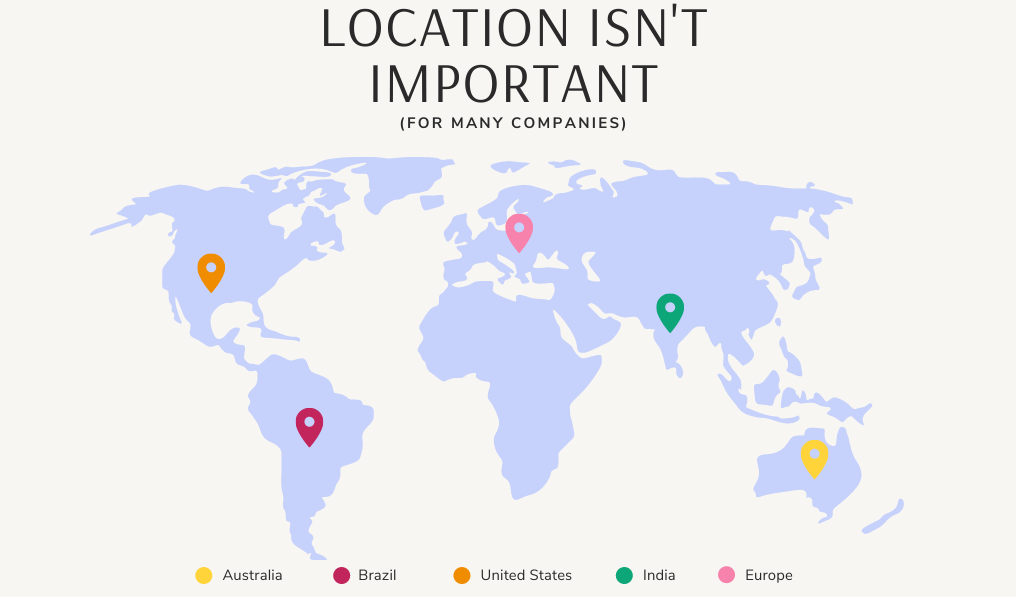4 Things That No Longer Matter When Hiring Someone
Posted by Noel • January 11, 2022 (Last modified June 14, 2022) • 5 min read
Too often, when we focus on hiring someone, we focus on things that don’t contribute to their success in the long run. This causes us to miss out on people who could be great employees. Part of this is because we are stuck in old fashioned ways of thinking, or it could be because we can’t see the possibilities. Every company is different and has unique qualifications – but many of us look for the same things in potential hires.
Historically, HR has always looked for the same qualifications when hiring someone. However, many of those have fallen out of importance when determining job success.
What are some things that don’t matter when hiring someone? Keep reading through to learn more. If you are interested in hiring applicants quickly and getting them on boarded as soon as possible, click here to schedule a live demo of Trakstar Hire, one of the best applicant tracking systems on the market today.
Location, Location, Location
Where someone lives doesn’t matter anymore for many companies and jobs. Most companies have some kind of remote culture, and some companies have gone completely online over the last few years. Whether your company is remote-only or hybrid, location isn’t as limiting of a factor as it used to be. This is a good thing for most companies who can now hire people across the globe.
Of course, you have to keep things in mind when it comes to hiring people in different time zones and areas. This could include things like projects that require teamwork and meeting times. Set the standard going into the job that someone will have to be online at certain times to take meetings or answer questions.
Before hiring someone, ask if they would be willing to at least travel once or twice a year to your office, if you need them to be there. If it is going to be more, like once a month or once a quarter, you should let them know that as well. Being open and honest with hires allows them to have realistic expectations about what is expected of them when they have the job. Not revealing these key facts could lead to employee retention problems.
Skills Don’t Necessarily Matter When Hiring
Of course people need to have the basic skills necessary to do their jobs, but they don’t need to have all of them. Knowing how to do something, being able to do it, and being able to learn how to do it are all different skill sets. Most people won’t have all three.
If you want to hire an upper-level executive that needs to come in and completely revolutionize the way a department works, then you want them to have some practical experience and skills. However, entry-level employees don’t need to have every single skill for the job.
What should you look for instead? Look for someone that has a good work ethic, is nice to talk to, is enthusiastic about the work that needs to be done, and someone who can learn. You cannot always retrain someone’s personality, but you can train them to be better within a specific field. In fact, according to Leadership IQ, attitudes drive 89% of hiring failures, while technical skills account for only 11% of hiring failures.
Experience Doesn’t Matter When Hiring Someone
In a similar vein, the amount of experience someone has doesn’t matter when you hire them. People with very little experience could have fresh ideas and interesting takes, whereas someone with over a decade of experience could be stuck in their ways and very reticent to actually accomplish anything. There have been multiple studies that suggest someone’s experience doesn’t always indicate whether or not they will be successful at a specific job or position.
Once again, you want to look for someone that is able to be trained, someone who is a team player, and someone who is willing to try new things. Most companies don’t use the same techniques over and over again, so it makes sense that someone with experience won’t necessarily be a huge advantage over someone who may come with a smaller salary or fewer personality issues.
This is something, once again, companies will have to weigh themselves. Do you want someone with more experience who may be stuck in their ways or someone who may need a little more guidance but is flexible? HR leaders, along with managers, have to make that call.
The Research They’ve Done
Some companies want to know that potential candidates do their research on their products and everything they do, but this isn’t necessary. Most companies educate their new hires throughout the onboarding process. While it shows some initiative that a potential hire did some research, it isn’t always indicative of future success. After all, the people you interview are probably applying at other companies, working their own jobs, and don’t have the time to do the research.
Simply put, this is one of those older metrics that is just antiquated at this point – and may never have been good in the first place. Anyone can read an “about us” page.
Ready To Improve Your Hiring Process?
If you want to improve your hiring process, consider learning more about Trakstar Hire. Our automated software makes hiring easier than ever before. Not only can you streamline your job postings, but you can ensure that you track applicants, score them, create talent pools, and much more.
For more information about Trakstar Hire, click here to schedule a live demo.
Don't Miss Out on More Great HR Articles!
Subscribe to get the latest, greatest HR and Talent Development content straight to your inbox.




